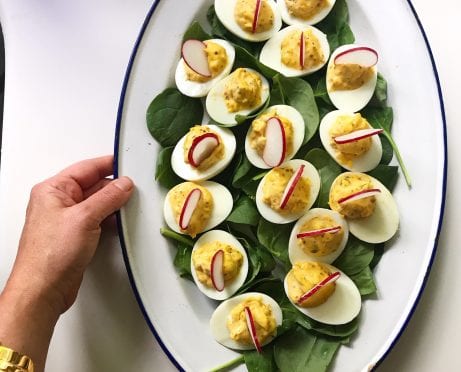
Daye Deura
You might think minimalism is for the poor. Sometimes minimalism is a lifestyle choice. Other times it becomes necessary by circumstance. My story is the latter.
When I was little, I didn’t enjoy going without, but it was natural for me because of how I was taught and how I lived. My parents knew the difference between a need and a want before these terms became popular tenets in teaching children financial literacy.
It was only in college when I realized the advantages of being blessed with less. While my classmates jetted off to Cancun for every vacation, I was laser-focused on acquiring life skills. Here are the top three life skills I learned from minimalism, and how they've helped me succeed:
- Resourcefulness
- Healthy habits
- Gratitude
Save Without Ever Lifting a Finger — Learn More >>
1. Resourcefulness
Living with the bare minimum molded me into a resourceful person — I visit multiple stores to ensure I get the best prices; I go the extra mile to ask people, including strangers, for advice; and more.
Instead of being a victim, having less than others taught me to be a go-getter.
Without a doubt, this trait played a key role in my college admissions process. As a first-generation college student, I made it a priority to talk to everyone: high school counselors; community counselors from Henry Street Settlement, a nonprofit that provides social services to residents of New York City’s Lower East Side; alumni; older friends who were in college; and even strangers remotely related to the topic of college.
The simple act of asking can bring wondrous rewards and results: I found out about free college prep programs just by asking other first-generation college students. I took advantage of the resources around me and my resourceful mindset helped me in my admission into Swarthmore College, one of the top liberal arts colleges in the country.
2. Healthy Habits
My parents didn’t believe in indulging their children, so there was no concept of allowances. Even if they did give me money, I was careful because I knew that spending it meant less to pay for my family’s rent, groceries, and electricity bills. Money in my family is seen as a shared, not individual, resource. There is a communal sense of responsibility. This made me aware of my actions’ impact on my family’s finances.
While my friends indulged in my favorite crispy BBQ potato chips after school every day, I snacked on an apple. When they cried to their parents for dessert, I ignored the siren call of the ice cream truck and drank the sweet herbal tea that my mom carefully packed.
Get Food, Drinks, and Groceries — Anytime, Anywhere >>
Only after eating buffet-style meals and dessert daily during my freshman year of college did I realize that I took eating healthy food for granted. I now celebrate that my lifestyle caused me to forgo 19 years of junk food. Imagine what would have happened if the 5-year-old me got an allowance every day. Freshman 15 would have taken on a whole new meaning.
3. Gratitude
When I was a child, I was especially annoyed on my birthday because I received no presents. My family had a celebration dinner together. The togetherness was the gift, though I can’t say I always saw it like that.
On my sixth birthday, with two flimsy side ponytails and chubby cheeks flushed with annoyance, I scowled at my mother with pure hatred. I told her I wanted the Hello Kitty sticker book from Scholastic, but there were no signs of the famous white feline.
No matter how hard I wailed, I didn’t get what I wanted. I’m thankful for that to this day.
Because first of all, Hello Kitty stickers aren’t important. Plus, really — Hello Kitty stickers? Wow, did I have bad taste at six. But the point is, I learned the world has so much to offer without my needing to buy things.

For example, why buy books when you have a public library? There’s nothing wrong with buying books, but I am suggesting that there are things in this world that we can appreciate without needing to own them.
In today’s society, one thing we can’t get enough of is more. More is good. More money, fame, and materialism equate to a successful life.
But let’s face it: That mindset is exhausting. Living with precious little material things made me realize that I already have so much to be thankful for: the present and its simplicity. These have allowed me to focus on what's essential for me.
Get Real-Time Spend Notifications — Try it Free >>
Learning Life Skills From Minimalism
I encourage you to take the first step: Reflect on and write down your values, needs, and wants with no judgments. I hope you’ll gain a better understanding that things you may think are essential really aren’t once they stare back at you in black and white.
Now it’s up to you to decide what sort of values you want to embrace. I know that I’ve found mine.










